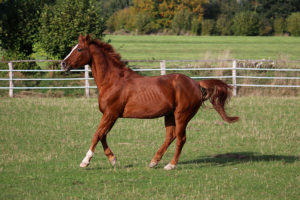Second Kansas County Confirmed With VSV

Additionally, since the USDA’s previous Situation Report on June 16, five new positive premises and eight new suspect premises were confirmed in Butler County, where the state’s index case occurred earlier this month.
The new cases bring the state’s totals to six confirmed positive premises and eight suspect premises in Butler County, and two confirmed positive premises in Cowley County. Currently, all 16 Kansas premises remain quarantined.
Premises with confirmed positive and suspect cases are quarantined and monitored by veterinarians for at least 14 days from the onset of lesions in the last animal affected on the premises
Create a free account with TheHorse.com to view this content.
TheHorse.com is home to thousands of free articles about horse health care. In order to access some of our exclusive free content, you must be signed into TheHorse.com.
Start your free account today!
Already have an account?
and continue reading.
Related Articles
Stay on top of the most recent Horse Health news with

















